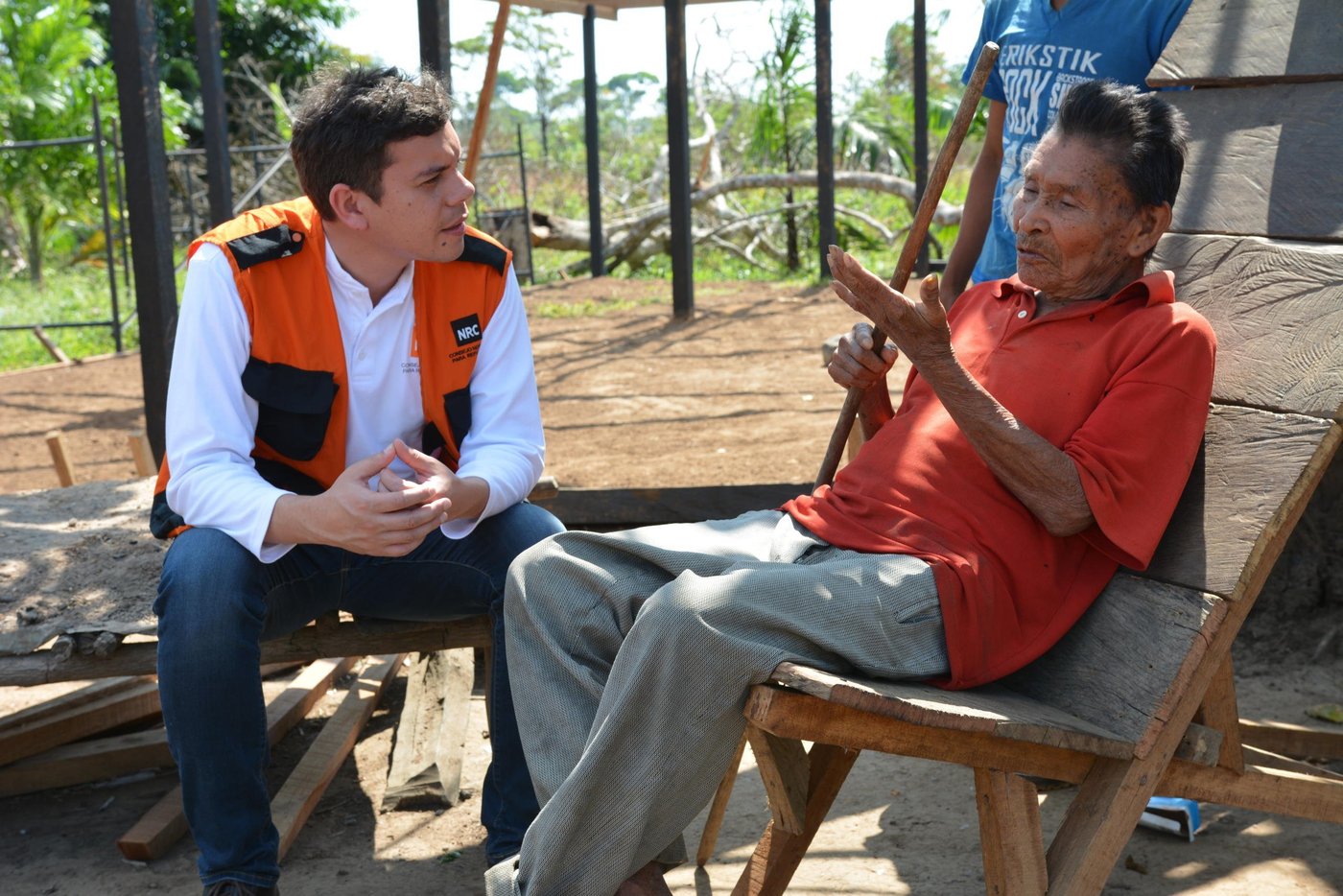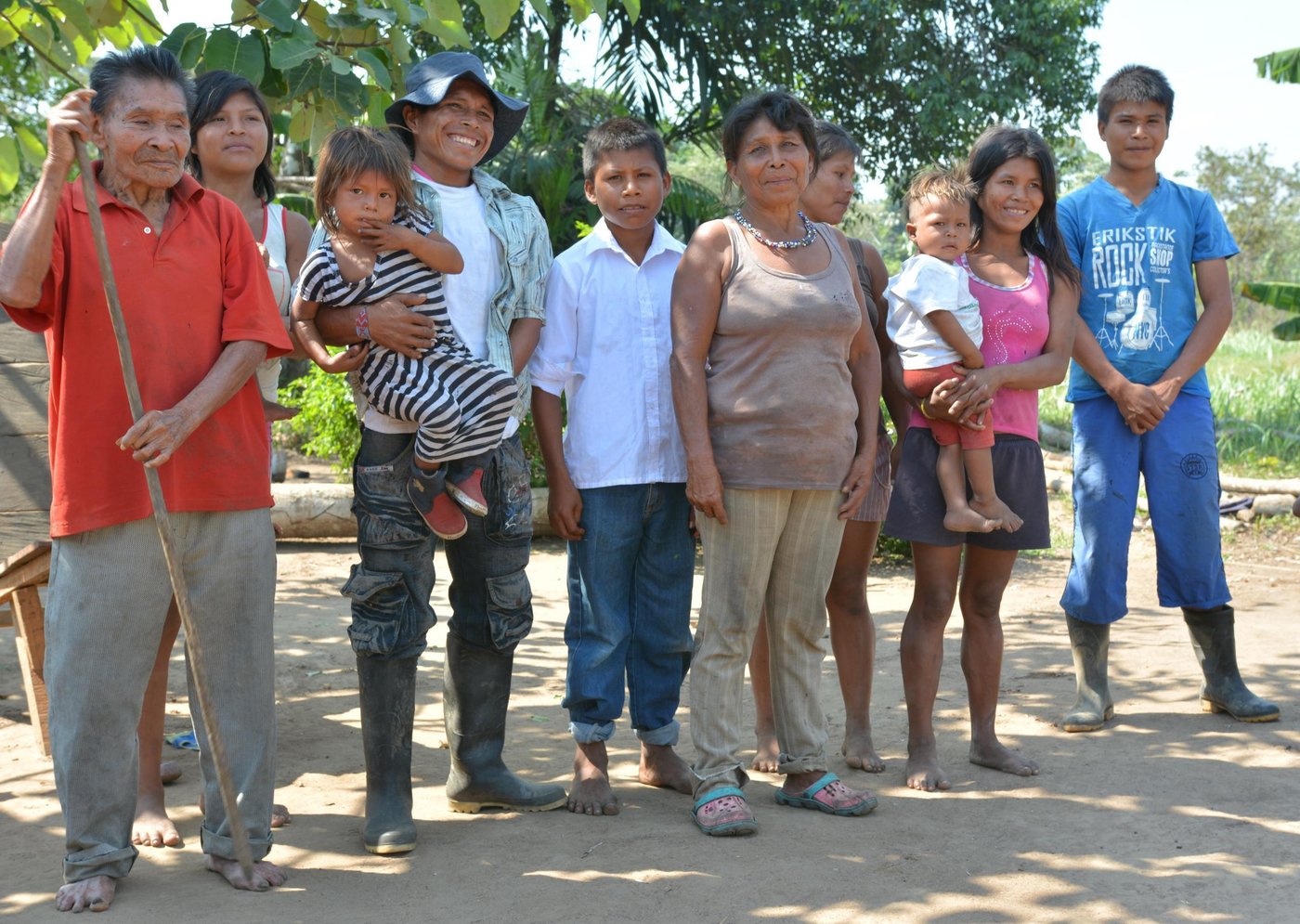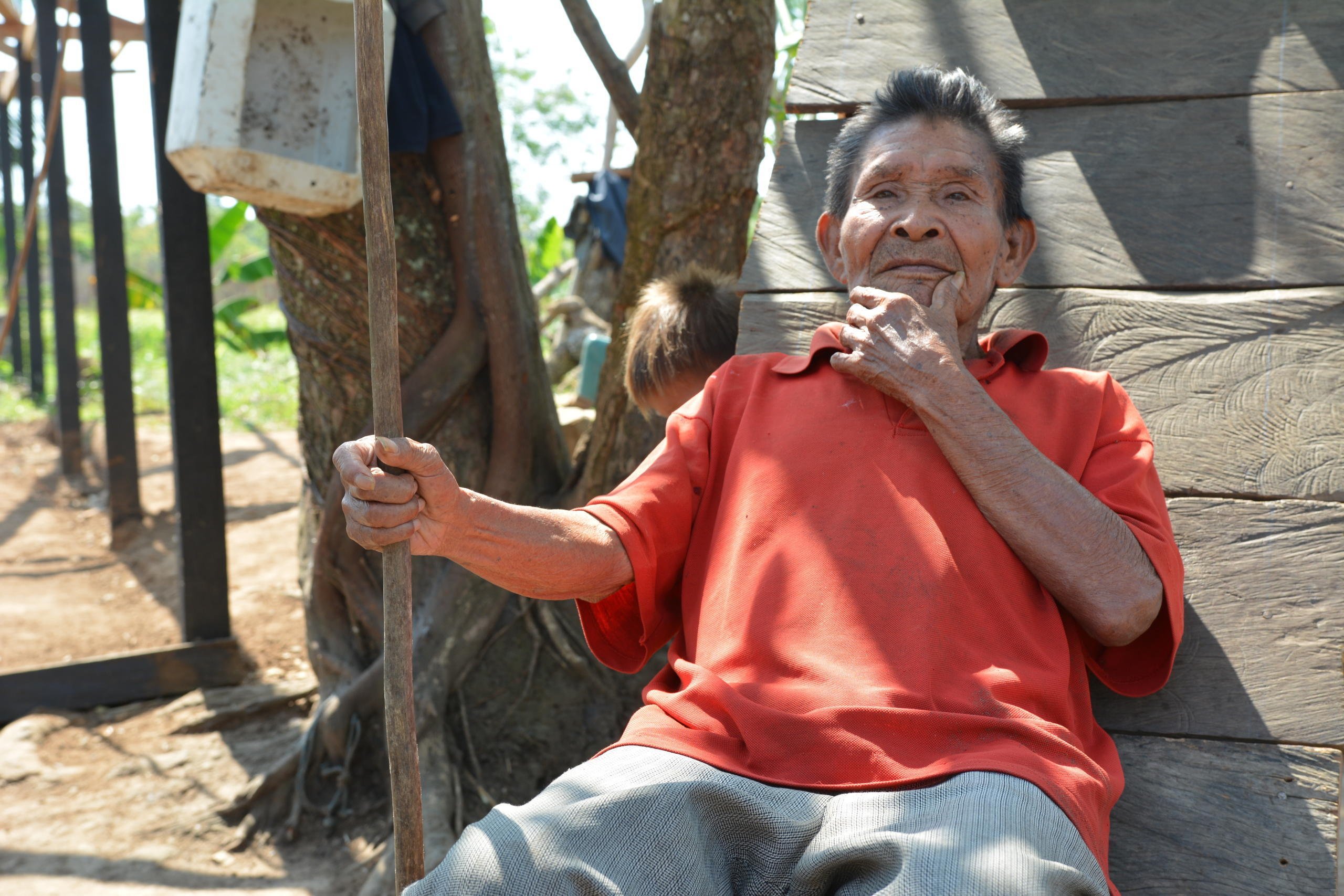Vicente sitter i solen sammen med oldebarnet, Andreas. Han forklarer hvor stor betydning folkets håndflettede kurver har hatt gjennom generasjoner. Det er jobben hans å lære Andreas det tradisjonelle håndverket.
– Alle de unge burde lære det slik jeg lærte det, sier han.
Men de gamle håndflettingstradisjonene til Jiw-folket er i ferd med å dø ut. Det lille samfunnet har flere ganger blitt tvunget til å forlate forfedrenes land på grunn av konflikt. For hver gang folket har blitt drevet på flukt, har en liten del av den unike kulturen deres gått tapt.
I 2009 kunngjorde regjeringen at Jiw-folket var én av landets 30 mest truede stammer. I dag består den av om lag 3.000 personer.

Alle de unge burde lære det slik jeg lærte det.Vincente (76)
Fordrevet i førti år
Enkelte av de 17 familiene i dette lille samfunnet i El Salado har levd på flukt fra vold siden 1970.
Vicente, datteren hans Luzdary og Andreas er tre generasjoner Jiw som endelig har fått returnere til forfedrenes land. Flyktninghjelpen har hjulpet dem og flere andre slik at de kan vende tilbake til et sted de kan kalle "hjem".
Jiw-folket er en tradisjonell jegerstamme, og Andreas viser stolt frem spydet han bruker når han er på jakt.
– Det er færre dyr nå enn det var før, og mennene i lokalsamfunnet må gå i opp til åtte timer når de skal jakte etter mat som skal mette familiene våre, sier Andreas.

Han ønsker å jobbe med datamaskiner når han er ferdig på skolen.
– Folk som jobber med data tjener mer penger, ler han.
Vincente merker at folketallet i stammen faller.
– Før i tiden hadde noen familier 50 medlemmer, husker han.
– Nå er de bare 30 medlemmer. De dro til byene.
Før i tiden hadde noen familier 50 medlemmer. Nå har de bare 30. De dro til byene.Vicente
Forsømte samfunn
En fredsavtale som ble signert i Colombia i 2016 gjorde det mulig for landet å bygge seg opp igjen etter flere tiår med krig. Internasjonale organisasjoner ønsker å hjelpe, og finansieringen strømmer inn til bistandsprosjekter som jobber med å bygge freden. Likevel har mange colombianske samfunn som opplever humanitær nød, som Jiw, blitt glemt.
Til tross for fredsavtalen blir urbefolkningsgrupper fortsatt drevet på flukt. De 40 første dagene i 2017 ble det registrert seks store interne fordrivelser – over halvparten av de rammede var urfolk.
Flyktninghjelpen oppfordrer det internasjonale samfunnet til å jobbe kontinuerlig for å beskytte disse menneskene.
Selv om fredsforhandlingene har pågått i nærmere fem år, er flesteparten av Jiw-folket ikke engang klar over at de har funnet sted.

Bygge en fremtid
Flyktninghjelpen har jobbet med Jiw-samfunnet i Guaviare-regionen siden september 2015. Vi har hjulpet til med å gjenoppbygge husene til hundrevis av mennesker og familier som vender tilbake til forfedrenes jord. Vi gir gratis juridisk hjelp til urbefolkningen for at de skal kjenne til eiendomsrettighetene de har. Vi hjelper også barn slik at de kan komme tilbake på skolebenken.
Les mer om Flyktninghjelpens arbeid i Colombia her.


